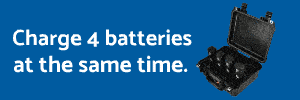- Joined
- May 9, 2018
- Messages
- 38
- Reaction score
- 5
- Age
- 44
Working 50+ hours a week delivering gives me a lot of time to think about things. My current train of thought is about where I live. I live on the coast near the ocean. Knowing the effects of salt water on metal and thinking I'll probably want to do some missions over the bay or off the coast, I was thinking that the pieces that will suffer the most are the connectors for various cables. Now when I work on cars I tend to use dielectric grease to protect the connectors. Would this work on the P3P or is the voltage and current too low and the added resistance cause issues?
What are your thoughts or experiences?
What are your thoughts or experiences?









